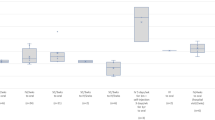Abstract
Decision making in healthcare often involves decision alternatives that vary on different dimensions in conflicting ways, such as health benefits and costs. In such cases, it is not always easy to identify the best option, as a tradeoff has to be made. In preference studies, patients evaluate health states or healthcare strategies reflecting this trade-off. A focus that is restricted to only health outcomes in decision making may be too narrow. Patients also derive utility, or experience disutility, from healthcare processes themselves. A range of techniques is available for eliciting valuations of patients for these processes and other non-health outcomes. At present, it is unclear to what extent, and how, clinical evaluation studies have taken into account non-health outcomes. We performed a systematic review of trade-off and valuation studies to assess the extent to which valuations of process and non-health outcomes have actually been elicited from patients, in what specialty areas, and what techniques were used.
We identified 567 articles that addressed patients’ preferences involving non-health outcomes. The main therapeutic fields were oncology (17%), gynecology/obstetrics (11%), pulmonology (11%), cardiology (7%), gastroenterology (6%), and infectious diseases (6%). There was an absolute increase from the early 1980s (a handful of studies published each year) to recent years (almost 100 publications per year). We noticed a strong increase in elicitation techniques aimed at identification of determinants of patients’ preferences.
The number of studies addressing preferences for medical dilemmas involving non-health outcomes is steadily increasing and covers the whole spectrum of health-related interventions across all medical fields. A diversification in application fields as well as in research methods was observed, reflecting a lack of standardization. There is a need for methodological standards and evidence-based criteria to evaluate the methodological quality and clinical validity of studies that address preferences for dilemmas involving non-health outcomes.




Similar content being viewed by others
References
Gold MR, Siegel JE, Russel LB. Cost-effectiveness in health and medicine. New York: Oxford University Press, 1996
Krabbe PFM. The valuation of health outcomes: a contribution to the QALY approach [in Dutch; PhD thesis]. Rotterdam: University of Rotterdam, 1998
Brouwer WB, van Exel NJ, van den BB, et al. Process utility from providing informal care: the benefit of caring. Health Policy 2005 Sep 28; 74(1): 85–99
Donaldson C, Shackley P. Does ‘process utility’ exist? A case study of willingness to pay for laparoscopic cholecystectomy. Soc Sci Med 1997 Mar; 44(5): 699–707
Howard K, Salkeld G, McCaffery K, et al. HPV triage testing or repeat Pap smear for the management of atypical squamous cells (ASCUS) on Pap smear: is there evidence of process utility? Health Econ 2008 Sep 3; 17(5): 593–605
Mooney G. Judging goodness must come before judging quality: but what is the good of health care? Int J Qual Health Care 2000 Oct; 12(5): 389–94
Ryan M. Using conjoint analysis to take account of patient preferences and go beyond health outcomes: an application to in vitro fertilisation. Soc Sci Med 1999 Feb; 48(4): 535–46
Nieuwkerk PT, Hajenius PJ, Van d V, et al. Systemic methotrexate therapy versus laparoscopic salpingostomy in tubal pregnancy: part II. Patient preferences for systemic methotrexate. Fertil Steril 1998 Sep; 70(3): 518–22
Hildingsson I, Waldenstrom U, Radestad I. Swedish women’s interest in home birth and in-hospital birth center care. Birth 2003 Mar; 30(1): 11–22
Lilford RJ, Richardson A, Stevens A, et al. Issues in methodological research: perspectives from researchers and commissioners. Health Technol Assess 2001; 5(8): 1–57
Leeflang MM, Scholten RJ, Rutjes AW, et al. Use of methodological search filters to identify diagnostic accuracy studies can lead to the omission of relevant studies. J Clin Epidemiol 2006 Mar; 59(3): 234–40
Lenert LA, Sturley A, Watson ME. iMPACT3: internet-based development and administration of utility elicitation protocols. Med Decis Making 2002 Nov; 22(6): 464–74
Acknowledgments
This study was financially supported by the Netherlands Organisation for Health Research and Development (ZonMW), The Hague, the Netherlands (grant # 945-10-16). The authors are grateful to Marcel G.W. Dijkgraaf (MGD), Joke C. Korevaar (JCK), Marije Deutekom (MD), and Carlo van Dongen (CvD) for reviewing articles for this study. The sponsors were not involved in the study design, data collection, analyses and interpretation of data, the writing of the report, or the decision to submit the paper for publication.
The authors have no conflicts of interest that are directly relevant to the content of this review.
Author information
Authors and Affiliations
Electronic supplementary material
Rights and permissions
About this article
Cite this article
Opmeer, B.C., de Borgie, C.A.J.M., Mol, B.W.J. et al. Assessing Preferences Regarding Healthcare Interventions that Involve Non-Health Outcomes. Patient-Patient-Centered-Outcome-Res 3, 1–10 (2010). https://doi.org/10.2165/11531750-000000000-00000
Published:
Issue Date:
DOI: https://doi.org/10.2165/11531750-000000000-00000




